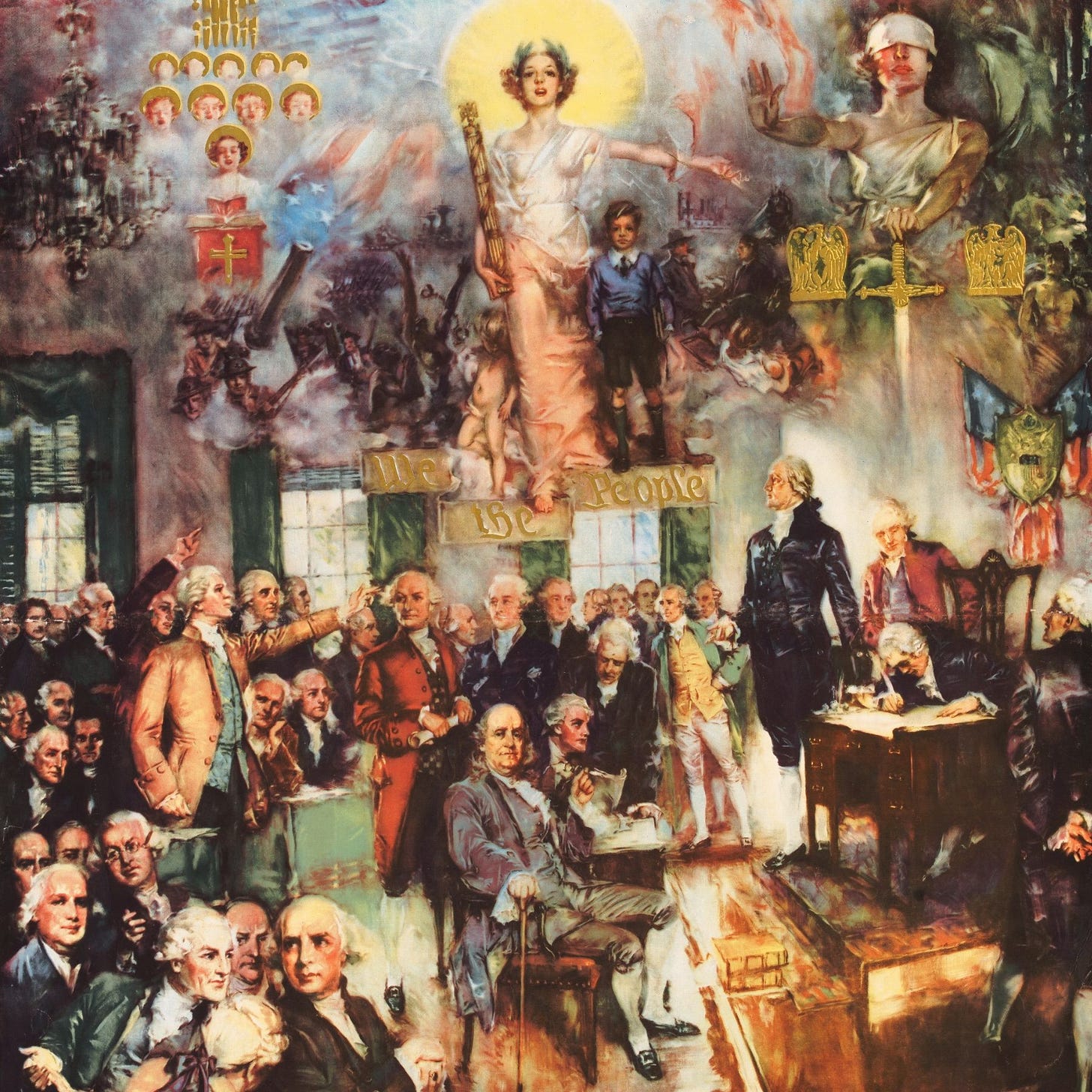When Democracies Lose Their Loveliness
Success and inertia might prop up democracy for a few decades, but long-term legitimacy requires something deeper.
Welcome to a Wisdom of Crowds "Debate." The goal is to explore why we believe the things we believe, working through the tensions and contradictions in real time. We would love to have you take part, and hear from you in the comments! Editor-at-large Samuel Kimbriel begins, Damir responds.
Samuel Kimbriel:
Having spent a fair amount of time around you, Damir, in the last year (in the context of our “secret reading cabal”), I’d like to take a stab at stating what I call the Marusic Paradox. It goes something like this: rulers should be scrupulously attentive to what their people value in order to build and maintain power, even though they (the rulers) know that there is no actual weight to those values.
If I have that right, I take it to be a paradox because it heightens both extremes. On the one hand, it is insistent that one of the most important and ineliminable facts about our species is our constant attachment to meaning-making, to grounding ourselves in reality, to looking for a broader story. On the other hand, it is confident that it is justified in deflating all of those overwrought truth-claims.
While I have my objections to this principle, I bring it up here because I think it is actually very useful in drawing attention to one of the most tangled questions about democratic theory: How do democracies gain their legitimacy? The undergraduate answer here is always “the people.” Sovereignty is not simply inherited, nor bestowed by divine gift, but is vested within the population. This initially sounds fairly straight-forward, and perhaps echoes of something like the humanism I would advocate.
It’s not easy, however, to see what it means in practice. Perhaps popular sovereignty just is a claim for majoritarianism—strength of numbers wins. If enough of the population can register their preference, then that policy or government is legitimate. For most modern audiences, however, this isn’t enough as we are also concerned with protecting minorities against certain sentiments in the majority.
Other answers—the logic of representation, focus on structural integrity—are familiar but also seem to be breaking down. People seem to want to distrust the system, often even in the face of evidence regarding its reliability.
The narrative about why democracy is legitimate is in trouble. So here’s the question: What is at stake in this question of legitimacy? Where are we when a system loses the power to convincingly articulate its metaphysical story?
Damir Marusic:
The answer to your question about stakes, Sam, is simple enough: “Everything is ultimately at stake.” Maybe, as Ross Douthat suggests in his most recent book on decadence, we can and will muddle along in this morass for quite a while. But I’m not so certain that’s true. Or, perhaps better put, I’m worried that it’s not true. I’m not sure that we have collectively thought very hard about what democratic legitimacy derives from. And in being too glib about it, in thinking that all we need to sustain a democratic polity is an adherence to (also poorly articulated) universal values such as “equality” and “fairness,” we are perhaps inadvertently trampling its remaining vestiges underfoot.
Let me be clear on this point, because I think you might be ascribing to me a certain kind of college freshman glibness of my own: “equality” and “fairness” are in fact important values, and there is much to suggest that as human beings, we feel their innate pull from an early age. In that sense, these values are arguably “universal,” and even a fundamental driver of human behavior. But there is a huge leap from acknowledging both these things to be true to arguing that they are sufficient for the cohesion of a polity—especially a democratic polity.
(I’m oversimplifying by somewhat arbitrarily singling out “equality” and “fairness” as the principles that most modern Western democrats see as foundational for their societies. The list is longer and woolier, and there is no consensus on what it contains. But there is a sense that a certain set of “universal values” are sufficient, and that this is what binds “us” and legitimates our regimes.)
It seems obvious to me that the legitimacy of any regime is dependent on the actions of its leaders, its elites—or its “rulers,” as you put it above. We say that elites need to constantly earn the trust of the people in order to retain their power. But that’s all too simplistic. If they are to be successful, they need to enchant the process of ruling in such a way that the legitimacy of the system is sustained. And doing so is a lot more than just paying lip service to “universal values,” which for almost all American presidents up to but not including Donald Trump was second nature.
Donald Trump’s lapse in rhetoric is not the problem. The inability to enchant had already faltered, even under the gifted orator Obama. It’s telling, however, that as we now struggle to recover, we are clutching ever more tightly at these childhood values even as the ground slips out from under us.





